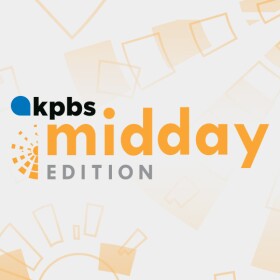Several gorillas at the San Diego Zoo Safari Park have tested positive for SARS-CoV-2, the virus that causes COVID-19, zoo officials announced Monday.
On Wednesday, two of the gorillas began coughing, and veterinarians began testing fecal samples from the gorillas for SARS-CoV-2 through the California Animal Health and Food Safety Laboratory System. On Friday, the preliminary tests detected the presence of the virus. The U.S Department of Agriculture National Veterinary Services Laboratories confirmed the results Monday.
The test showed the presence of the virus in some of the gorillas and did not definitively rule out the presence of the virus in other members of the troop.
"Aside from some congestion and coughing, the gorillas are doing well," said Lisa Peterson, executive director of San Diego Zoo Safari Park. "The troop remains quarantined together and are eating and drinking. We are hopeful for a full recovery."
Zoo officials suspect the gorillas acquired the infection from an asymptomatic staff member, despite following all recommended precautions, including COVID-19 safety protocols such as wearing personal protective equipment when near the gorillas. They say the primates will be closely watched.
“We allow them to tell us what’s happening through behavior and through what we see and we will intervene if needed based on the symptoms that show themselves," Peterson said. " Fortunately at this point the symptoms that we are seeing are mild. We’re hearing a bit of coughing. A little runny nose.”
According to a San Diego Zoo Global statement, studies have verified that some non-human primates are susceptible to infection with SARS-CoV-2, but this is the first known instance of natural transmission to great apes and it is unknown if they will have any serious reaction.
There have been a number of cases where big cats in zoos in Kentucky and New York contracted the disease.
"For almost one year our team members have been working tirelessly, with the utmost determination to protect each other and the wildlife in our care from this highly contagious virus," Peterson said. "The safety of our staff and the wildlife in our care remains our number one priority."
The gorillas testing positive for the virus caught the attention of Gov. Gavin Newsom, who mentioned it during his Monday briefing.
San Diego Zoo Global has biosecurity measures in place to protect wildlife in its care and has previously protected its wildlife populations from emerging disease threats in the community such as Newcastle's Disease and West Nile Virus.
In March 2020, San Diego Zoo Global scientists worked with disease experts to share their expertise in biosecurity with the USDA and the American Zoology Association establishing industry practices for protecting wildlife worldwide.
The San Diego Zoo Safari Park has been closed to the public since Dec. 6.








